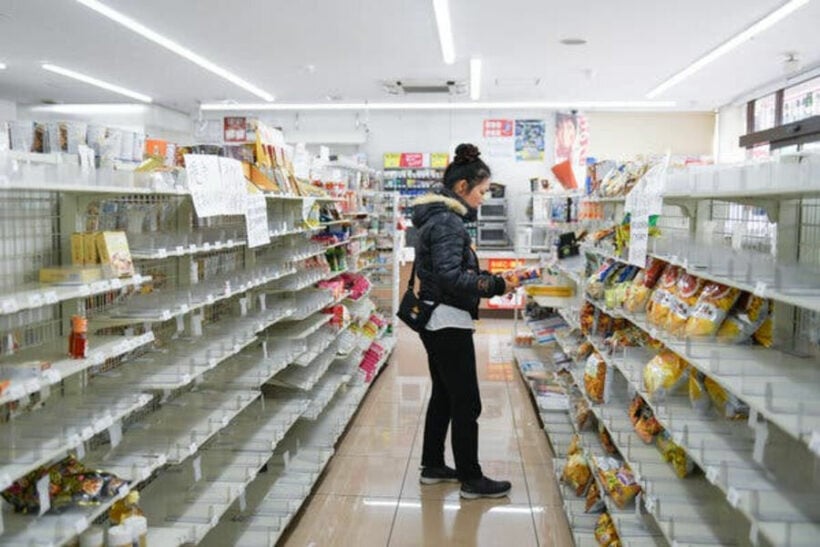Food shortages beginning as Covid-19 limits production

As Covid-19 outbreaks shut down factories and food processing plants and pull infected workers off the job, Thailand now faces the possibility of food supply shortages. Markets and supermarkets are beginning to see reductions in available stock after nearly 100 food processing plants across the country have been closed or partially closed with production capacity reduced.
Some markets are closing because of a lack of supply of foods to sell. In other public markets, many stalls have closed and ones that remain open often run out of stock, unable to cater to all their customers’ demands. Food suppliers with shortages are decreasing the frequency of their deliveries and only delivering a fraction of the quantities ordered to ration stocks that are not keeping up with demand.
The scarcity has also started to drive food prices up with one local vendor saying chicken prices have increased at least 5 baht due to supply shortages and closed processing plants. Shoppers are beginning to feel the squeeze as they find less choice and higher prices at their local markets and supermarkets. Photos are appearing on social media of even big corporations like 7-11 with nearly empty shelves.
Staples like meat, noodles, milk, snacks, sauces, sweets, sausages, and instant meals are often in short supply and shoppers are commenting that they normally stock up, but stores don’t have enough now to do that so they just buy what they can when they can. Last year at the outbreak of Covid-19, the government urged people to stay calm and promised there would be no shortages on staple food items like these, even if lockdowns lasted a year.
Food processing plants are trying to keep operating while still keeping employees safe from Covid-19 outbreaks, using the Bubble and Seal technique that seals off infected workers, according to the President of the Thai Food Processor Association. That, along with active testing being performed frequently to stay on top of any emerging cluster, allows factories to continue, even if they must reduce production, a solution far better than pushing ahead at full steam only to be completely closed by a Covid-19 outbreak.
The president of the Thai Wholesale and Retail Trade Association said that many food processing plants have seen 20 to 30% reductions in production capacity. This reduction is negatively complemented by increased demand for groceries as much of the nation is under partial lockdown measures, increasing the amount of home-cooked meals and in-home dining and snacks, creating food shortages.
SOURCE: Thai PBS World
Latest Thailand News
Follow The Thaiger on Google News:


























